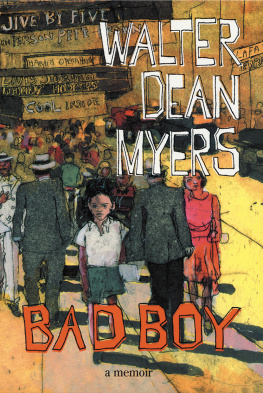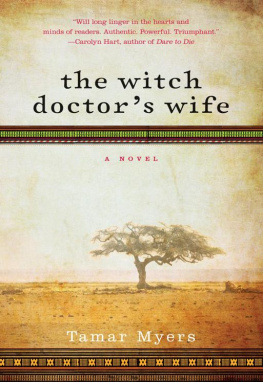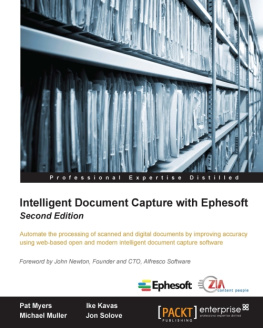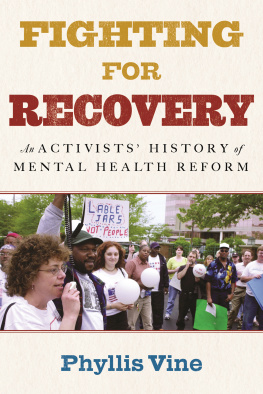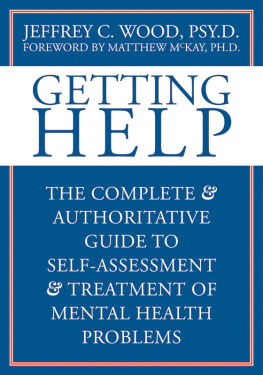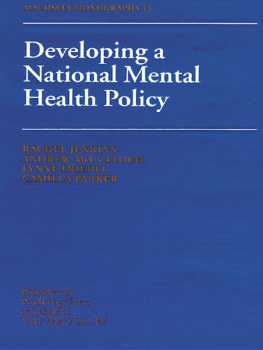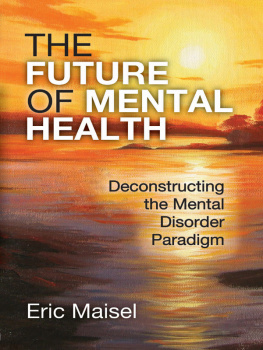Choice, moral agency, empowerment, patient-centered care, user-run services, peer staff, recoveries! All so easily envisioned on paper, in mental health policies, and at conferences. As Myers shows us, doing the work to make these ideas happen in daily life is inestimably trying, unpredictable, unruly, and tumultuous for all concerned.
Sue E. Estroff, University of North Carolina at Chapel Hill, author of Making It Crazy: An Ethnography of Psychiatric Clients in an American Community
Well written and morally compelling, this rich ethnography details both the new promise of recovery from schizophrenia and its pitfalls in an American context. In the process, it explains how the experience of schizophrenia is shaped for so many by American values of individualism, independence, and work.
Tanya M. Luhrmann, Stanford University, author of Of Two Minds: An Anthropologist Looks at American Psychiatry
In public mental health, no term is more troubled and unsettled than recoveryand with the onset of managed behavioral care matters are likely to get worse. But one of its versions, in one of its trial stagings, has been graced with an attentive chronicler. Neely Myers has captured the thrilling promise, rampant misunderstandings, mundane messiness, and institutional inertia occasioned (or exposed) by recovery.... This is public-interest ethnography with head and heart fiercely engaged.
Kim Hopper, Nathan Kline Institute for Psychiatric Research, author of Reckoning with Homelessness
RECOVERYS EDGE
RECOVERYS EDGE
AN ETHNOGRAPHY OF MENTAL HEALTH CARE AND MORAL AGENCY
Neely Laurenzo Myers
VANDERBILT UNIVERSITY PRESS
NASHVILLE
2015 by Vanderbilt University Press
Nashville, Tennessee 37235
All rights reserved
First printing 2015
This book is printed on acid-free paper.
Manufactured in the United States of America
Recipient of the Norman L. and Roselea J. Goldberg Prize from Vanderbilt University Press for the best book in the area of medicine.
Library of Congress Cataloging-in-Publication Data on file
LC control number 2015010083
LC classification number RA790.55
Dewey class number 362.2'2dc23
ISBN 978-0-8265-2079-1 (hardcover)
ISBN 978-0-8265-2080-7 (paperback)
ISBN 978-0-8265-2081-4 (ebook)
For Allen, and love that knows no bounds
CONTENTS
ACKNOWLEDGMENTS
I must first thank my youngest brother, Joseph Laurenzo, for inspiring this book. He is a great artist, listener, comedian, and friend. When he was eight years old, he was placed by the state in a year-round residential treatment institution for children diagnosed with serious psychiatric disabilities. Bearing witness to his and my familys experiences with the chaotic mental health system of care inspires my work.
My mother, Patricia Laurenzo, has offered writing advice, editing, and encouragement at every stage. My father, Steven Laurenzo, has long modeled patient courage, stick-to-it-iveness, and faith. My older brother, Eric Laurenzo, and his wife, Shelly, have always opened their ears, hearts, and home. My in-laws, especially Nancy, Henry, Lisa, Mike, Terry, Tim, Joseph, Dan, and Vaidan, have supported this project from its earliest conception with good conversation and hard questions.
My lifes work is made possible because others have learned how to experience recovery from serious emotional distressand many have also struggled. There are people who are public about their experiences and people who are not. To those who areDarby Penney, Oryx Cohen, David Oaks, Daniel Fisher, Pat Deegan, Fred Frese III, Elyn Saks, Leah Harris, Will Hall, and moresome of you are friends and some of you dont know I exist, but I thank you for all you have taught me while fighting the good fight.
Other teachers have also been invaluable. At Exeter, Douglas Rogers, George Mangan, and Michael Drummey taught me to write. Russell Weatherspoon and Robert Thompson fostered my faith. Corey Zimmerman and her mother, Alice, Shannon Powers (may she rest in peace) and her parents, Robert and Pamela, and Jesson Alexander all helped me cope with my brothers increasingly challenging experiences and learn how to channel my despair into writing and service. Later, my professors at the University of Virginia, most notably Eve Danziger, Edith Turner, and George Mentore, breathed life into my intellectual orientation for this project and inspired me to become an anthropologist.
Tanya Luhrmann and Kim Hopperboth incredible scholars and peoplehave been extraordinary mentors throughout my graduate and postdoctoral years. I cannot thank them enough. They have inspired me with their own work and always believed in mine. Countless hours have been spent advising me personally and professionally; helping me to navigate the inner workings of fieldwork, academia, life-work balance, and publishing; and writing letters of support. I could never be who I am without them.
The Department of Comparative Human Development at the University of Chicago was an excellent home for me in my graduate years, and I am especially grateful to Janie Lardner, our department administrator; Beth Angell; Sydney Hans; and Bert Cohlerall excellent scholars and good people. Later intellectual support and funding came from mentors funded by the National Institutes of Health (Grant No. 5-T32-AT000052): Ann Taylor of the Center to Study Complementary and Alternative Therapies at the University of Virginia and Mary Ann Dutton of the Department of Psychiatry at Georgetown University, Mary Jane Alexander of the Nathan Kline Institutes Center to Study Recovery in Social Contexts (Grant No. P20 MH078188), and Michael T. Compton, now Chair of Psychiatry at Lenox Hill Hospital in New York. Carole Sargent of the Office of Scholarly Publications at Georgetown University and Barbara Miller of the Department of Anthropology and Director of the Institute for Global and International Studies at the Elliott School of International Affairs at the George Washington University also offered critical support as I sought publishers for this book.
My reviewer Jim Baumohl and another anonymous reviewer provided excellent critiques that shaped the final manuscript. But really, it was Michael Ames, my editor at Vanderbilt University Press, who made this book what it has becomegoing line-by-line through drafts, and seeing the book as a civil rights document from the start. Joell M. Smith-Borne has also been an excellent and supportive copyeditor, and I am so thankful for her careful attention to this text.
In no particular order, I also appreciate the encouragement, comments, and intellectual contributions of Sue Estroff, Barbara Belton, Lisa Dixon, Janis Jenkins, Rebecca Lester, Eileen Anderson-Fye, Mary-Jo Delvecchio Good, Byron Good, Nancy Scheper-Hughes, Daniel Lende, Helena Hansen, Anne Lovell, Tom Csordas, Paul Brodwin, Conerley Casey, John Lucy, Mara Buchbinder, Kenneth MacLeish, Mark Furlong, Christine Nutter, Johanne Eliacin, Elizabeth Nickrenz, Sara Lewis, Jennifer Hammer, T. David Brent, Beth Broussard, and the students in my Culture and Global Mental Health seminars at the George Washington University in Autumn 2012 and 2013. My colleagues at Southern Methodist University, especially Sunday Eiselt, Nia Parson, Carolyn Smith-Morris, Caroline Brettell, Victoria Lockwhood, and Ron Wetherington urged me to finish this bookalways a help! And my department chair, Karen Lupo, tirelessly helped me secure the resources I needed to manage it all.
In addition, good friends provided relaxation and support throughout my fieldwork and writing period, including: Amy Horn, Andy Davis, Hallie Kushner, Lainie Goldwert, Pinky Hota, Brian Mulhall, Jennifer Brondyk, Leah Sumner, Jennifer Lynch, John Blaeuer, Maricruz Merino, and Elizabeth Byrd. Their refrainwhen is your book coming out, again?kept me hard at work.
Next page



